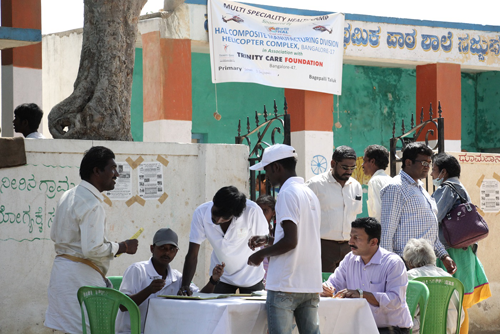


CSR in India has traditionally been seen as a philanthropic activity. And in keeping with the Indian tradition, it was an activity that was performed but not deliberated. As a result, there is limited documentation on specific activities related to this concept. However, what was clearly evident that much of this had a national character encapsulated within it, whether it was endowing institutions to actively participating in India’s freedom movement, and embedded in the idea of trusteeship.
As some observers have pointed out, the practice of CSR in India still remains within the philanthropic space, but has moved from institutional building (educational, research and cultural) to community development through various projects. Also, with global influences and with communities becoming more active and demanding, there appears to be a discernible trend, that while CSR remains largely restricted to community development, it is getting more strategic in nature (that is, getting linked with business) than philanthropic, and a large number of companies are reporting the activities they are undertaking in this space in their official websites, annual reports, sustainability reports and even publishing CSR reports.
The Companies Act, 2013 has introduced the idea of CSR to the forefront and through its disclose-or-explain mandate, is promoting greater transparency and disclosure. Schedule VII of the Act, which lists out the CSR activities, suggests communities be the focal point.
On the other hand, by discussing a company’s relationship to its stakeholders and integrating CSR into its core operations, the draft rules suggest that CSR needs to go beyond communities and beyond the concept of philanthropy. It will be interesting to observe the ways in which this will translate into action at the ground level, and how the understanding of CSR is set to undergo a change.
Benefits of a robust CSR programme
As the business environment gets increasingly complex and stakeholders become vocal about their expectations, good CSR practices can only bring in greater benefits, some of which are as follows:
-
-
Communities provide the licence to operate:
-
Apart from internal drivers such as values and ethos, some of the key stakeholders that influence corporate behaviour include governments (through laws and regulations), investors and customers. In India, a fourth and increasingly important stakeholder is the community, and many companies have started realizing that the ‘licence to operate’ is no longer given by governments alone, but communities that are impacted by a company’s business operations. Thus, a robust CSR programme that meets the aspirations of these communities not only provides them with the licence to operate, but also to maintain the licence, thereby precluding the ‘trust deficit’.
-
-
Attracting and retaining employees:
-
Several human resource studies have linked a company’s ability to attract, retain and motivate employees with their CSR commitments. Interventions that encourage and enable employees to participate are shown to increase employee morale and a sense of belonging to the company.
-
-
Communities as suppliers:
-
There are certain innovative CSR initiatives emerging, wherein companies have invested in enhancing community livelihood by incorporating them into their supply chain. This has benefited communities and increased their income levels, while providing these companies with an additional and secure supply chain.
-
-
Enhancing corporate reputation:
-
The traditional benefit of generating goodwill, creating a positive image and branding benefits continue to exist for companies that operate effective CSR programmes. This allows companies to position themselves as responsible corporate citizens.
Trinity Care Foundation improves Government Schools, conducts School Health Programs, community outreach programs and provides free Cleft and facial deformity surgeries for marginalized sections of the society in Karnataka state, India.
About Us
Trinity Care Foundation is a network of highly accomplished and networked Public Health Professionals in Karnataka State, India. They aim to solve the challenges of Healthcare in India by working in synergy with the Government system. At Trinity Care Foundation we aim to create a more efficient and effective social impact ecosystem using preventative healthcare system. Trinity Care Foundation is a registered charitable Trust under Indian Trusts Act and are registered under 12A, 80G and FCRA. It is registered with NITI Ayog, Government of India.
Corporate Social Responsibility (CSR) Partnership Programs:
- School Health Program
- Outreach Health Program
- Facial Deformities Surgeries
- Computer Education
- Empowering Government Schools Project
To help meet your corporate social responsibility (CSR) goals, Trinity Care Foundation (TCF) can create specific project proposals for your organization. We can manage and implement your CSR Projects, please get in touch with Mr.Binu Varghese/+91-9880358888 or Dr. Thomas/+91-9880396666 at support@trinitycarefoundation.org.
For more information about CSR Projects : Please leave your details:
One of our TCF team member will be happy to get in touch with you.
